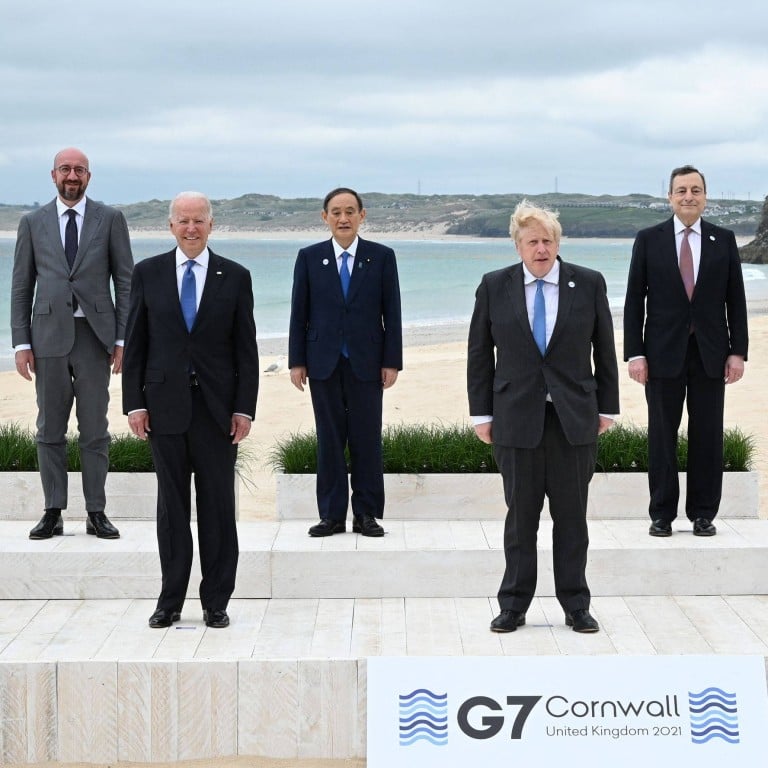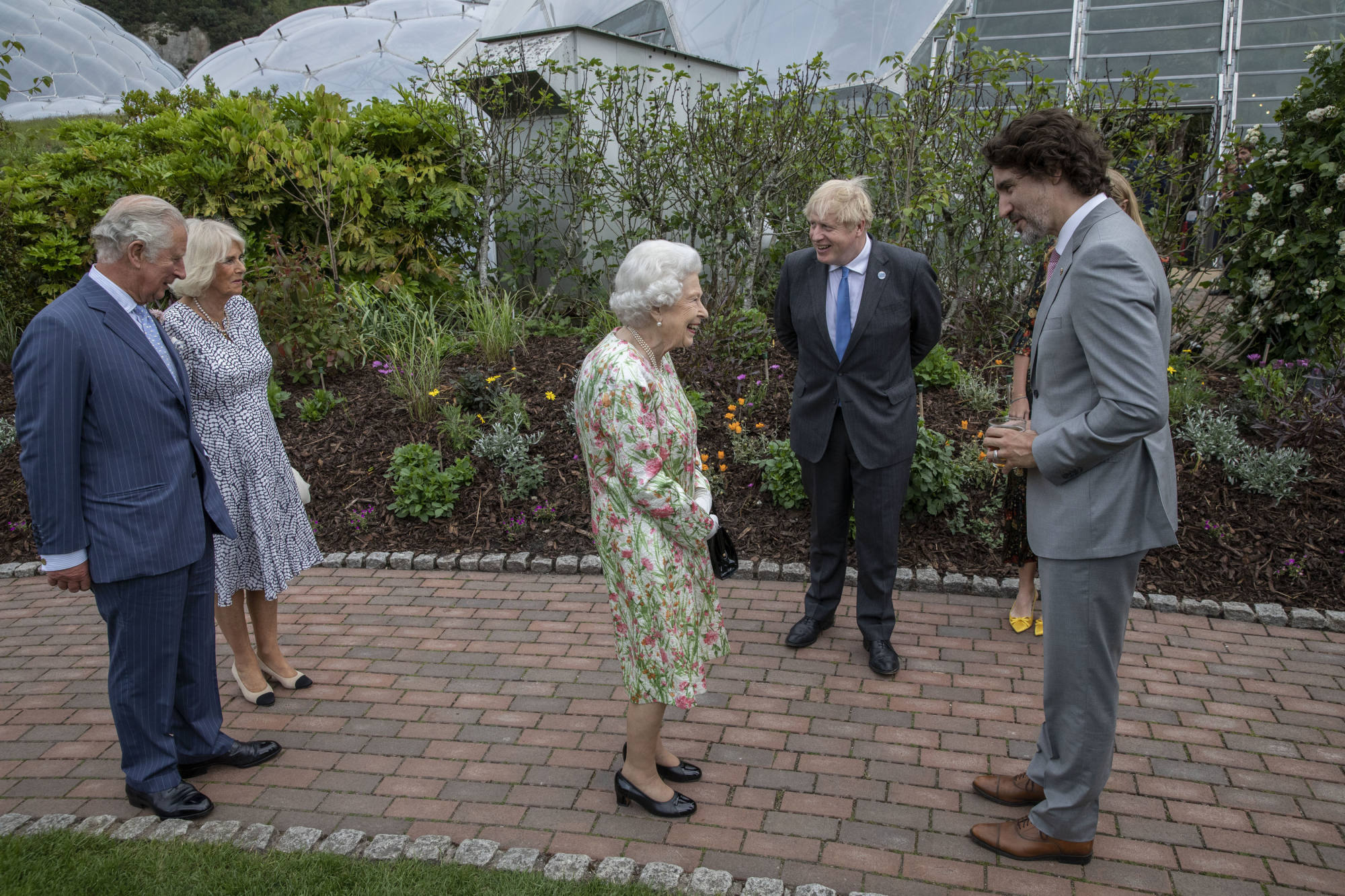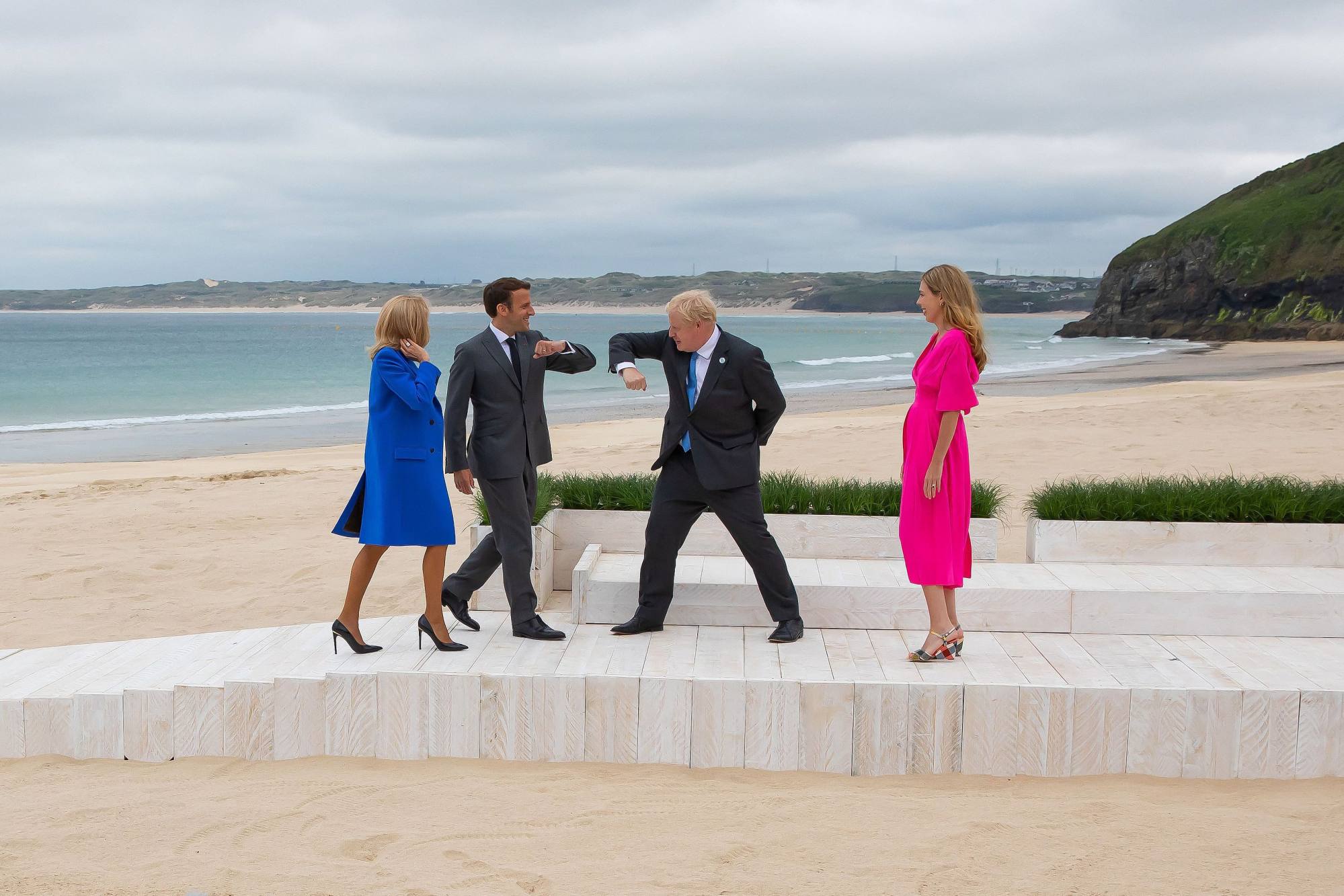
G7 leaders turn attention to China with announcement of global version of Biden’s ‘build back better’ plan
- Build Back Better World (B3W) requires ‘hundreds of billions of dollars of infrastructure investment for low- and middle-income countries’
- Plan involves ‘market-driven private sector, paired with high standards and transparency in public funding’
The G7 agreed to a global infrastructure plan called “Build Back Better World (B3W), a values-driven, high-standard, and transparent infrastructure partnership led by major democracies”, according to a US government statement.
“B3W will collectively catalyze hundreds of billions of dollars of infrastructure investment for low- and middle-income countries in the coming years,” it said, adding that the plan would “mobilize private capital through development finance”.
A B3W fact sheet distributed by the White House prefaced details of the plan by noting that Saturday’s discussion focused on “strategic competition with China” and a commitment “to concrete actions to help meet the tremendous infrastructure need in low- and middle-income countries”.

The “building back” theme figured heavily into the G7 agenda on Saturday, with sessions that included “Building Back Resilient - Foreign Policy” and “Building Back Stronger - Health”.
“China is far and away the current administration’s top foreign policy priority and thus nearly all foreign policy decisions are made through the lens of how they will impact the US effort to out-compete China,” analysts from Beacon Policy Advisers said in a note, adding that a willingness to collaborate on China would score points with Biden in other areas.
“Were European countries to signal a willingness to become closer partners with the US, there could be an increased effort to resolve these tensions in the relationship, but without that clear signal from Europe, they will remain out of the White House’s spotlight.”
.
While the White House did not give a specific cost estimate for B3W, an EU official said a figure of US$100 billion for the infrastructure plan had been discussed at negotiations this week, and that the initiative would focus on funneling money into Africa in a bid to counter Beijing’s rising influence there.
The plan is intended to be “global in scope, from Latin America and the Caribbean to Africa to the Indo-Pacific”, according to the fact sheet. “Different G7 partners will have different geographic orientations, but the sum of the initiative will cover low- and middle-income countries across the world.”
In an apparent dig at Beijing, the White House said B3W investments would be led by “a responsible and market-driven private sector, paired with high standards and transparency in public funding”.
Also in their meeting on Saturday, British Prime Minister Boris Johnson and German Chancellor Angela Merkel “discussed a number of foreign policy issues including China and Russia’s destabilising activity”, according to a readout.
Concern about climate change was presented as a guiding principle of B3W and woven throughout the discussions on Saturday.
“In addition to taking action at home, G7 leaders will commit to increase their contributions to international climate finance to meet the target of mobilising $100bn a year, which will help developing countries deal with the impacts of climate change and support sustainable, green growth,” the UK government said after the US announced the B3W plan.
“Developed countries have committed to jointly mobilise US$100 billion of climate finance a year by 2020 through to 2025, from a range of public and private sources,” it added. “The UK has led by example by doubling our own climate finance from 2021-2025 to £11.6 billion.”
The three-day summit began on Friday with coordination meetings and a photo under grey skies on Carbis Bay Beach.
European Commission President Ursula von der Leyen tweeted that the “main focus” of the coordination meetings included “COVID, climate and China” – a reiteration of what US officials had described as the “three ‘Cs’” that would dominate discussions this weekend.
“Multilateralism is back!” added European Council President Charles Michel, in what has been a running theme in the build-up to the first forum since former US president Donald Trump left office in January.
While foreign policy, reserved for Saturday’s sessions, was not on the official agenda on Friday, China did loom large over the first day’s talks.

A readout of a meeting between Johnson and Canadian counterpart Justin Trudeau on the sidelines of Friday’s summit said the pair “discussed a number of foreign policy issues including China and Iran”.
And after taking part in the traditional G7 “family photo” on Friday, French President Emmanuel Macron and Biden discussed how to avoid confrontation with China while defending their countries’ “values and interests”, Reuters quoted French officials as saying.
US’ reputation rebounds with Joe Biden instead of Donald Trump at the helm, Pew survey finds
On Thursday, Johnson, Michel and von der Leyen all joined these calls – along with Biden, who had previously expressed such views, in a sign that Western powers are coordinating on the issue.

There has been much speculation as to how far the US can push other members on including tough language and material action on China in Sunday’s communique.
Boris Johnson’s China balancing act faces test as G7 comes to town
“We need to know who our enemies are and where,” Macron said, in a sign that France may be unwilling to go as far as Biden would like on China.
Nato secretary general Jens Stoltenberg had previously said that China would feature more heavily than ever before at the summit.
“We need to engage with China on issues like arms control and climate change, and therefore China is not an adversary,” Stoltenberg said, but added that “they don’t share our values”.
Additional reporting by Owen Churchill


